Visitors flock to see 'Britain's Pompeii' display
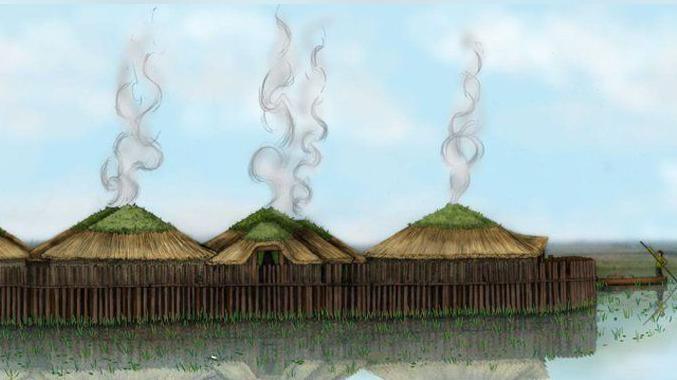
The well-organised settlement of about 10 roundhouses was less than a year old when a fire broke out and rapidly destroyed it, historians say
- Published
An extraordinary collection of 3,000-year-old household artefacts discovered at a site dubbed "Britain's Pompeii" has attracted visitors from across England.
The finds have been on display at Peterborough Museum & Art Gallery since April, their new permanent home.
The artefacts were unearthed at a Bronze Age village at Must Farm at Whittlesey, Cambridgeshire, which burnt down.
The museum said it had received 4,000 more visitors than it did in the same period last year, with people travelling from as far afield as Dorset, Newcastle, London and Kent.
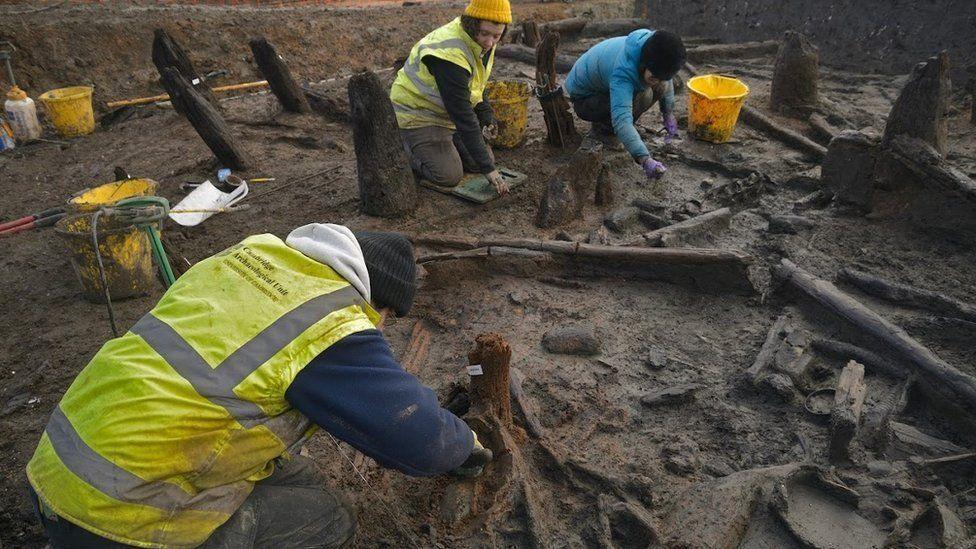
The village was built over a river and as the blaze took hold, its contents fell into the silt to be preserved for thousands of years
Domestic items from Must Farm were deposited into the river silt after the blaze, where they remained until they were excavated eight years ago.
The fleeing villagers left behind the largest collection of Bronze Age artefacts ever discovered in the UK, including 200 wooden objects, more than 150 fibre and textile items, 128 pottery vessels and about 90 pieces of metalwork.
The excavation's discoveries are of national importance, yet its finds are staying local, about eight miles (12km) from where they were found.
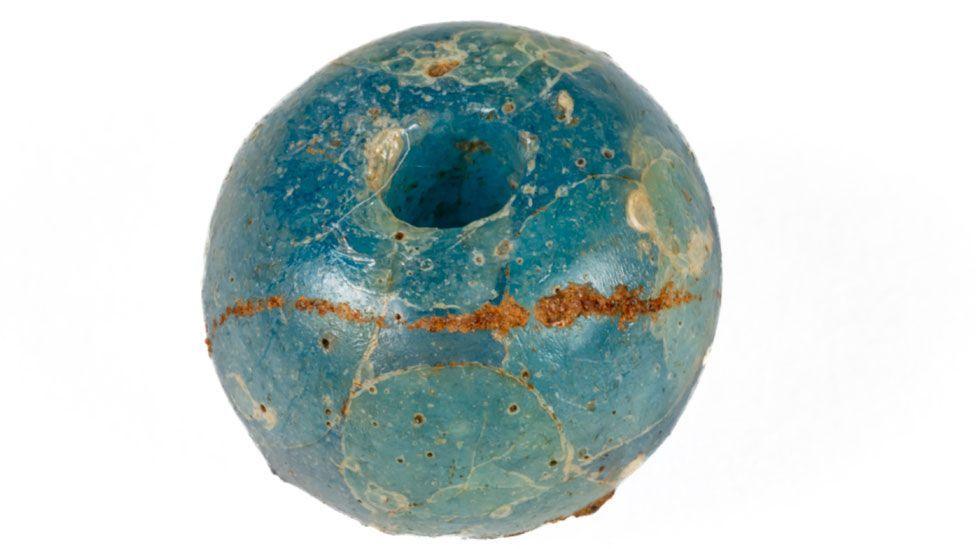
The dig revealed the largest find of glass beads from Late Bronze Age Britain, with most of the glass originating from Iran
The museum received 12,293 visitors between April and 16 July last year, compared to nearly 17,000 this year.
It asked visitors to fill out feedback forms, and 85% said they came specifically to see the exhibition.
One person said "thank you, I've been waiting years to hear more about this discovery", while another said it was "amazing, insightful, felt a real connection to the history of this area".
Introducing Must Farm, a Bronze Age Settlement, external runs until 28 September.
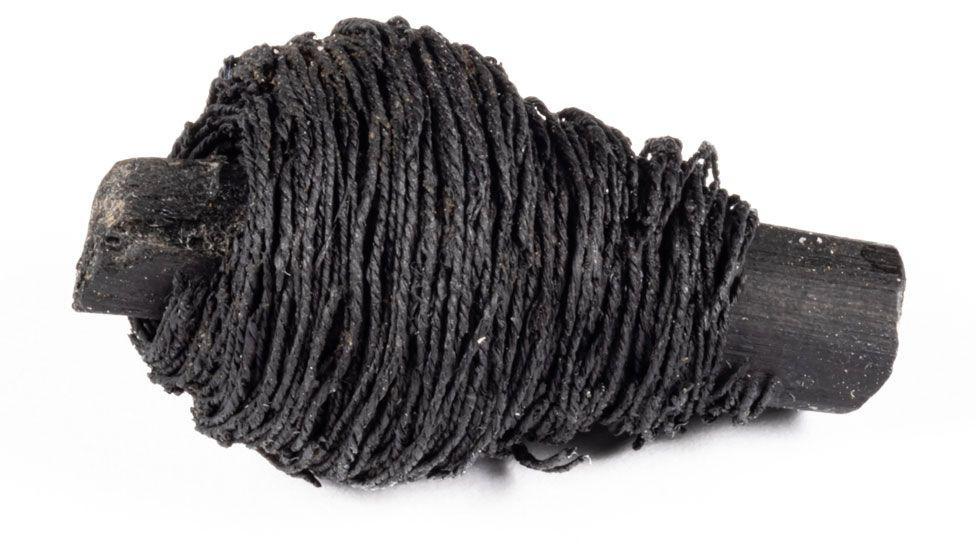
It is "absolutely remarkable" that fibre and textile items, usually the first to rot, were recovered from Must Farm, said museum heritage manager Sarah Wilson
Get in touch
Do you have a story suggestion for Cambridgeshire?
Follow Cambridgeshire news on BBC Sounds, Facebook, external, Instagram, external and X, external.
Related topics
- Published27 April 2024
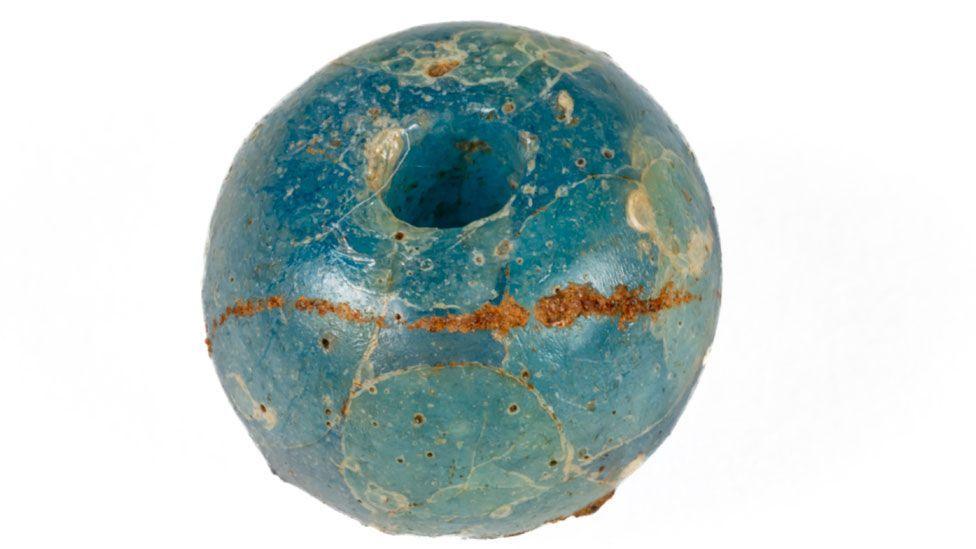
- Published26 April 2024
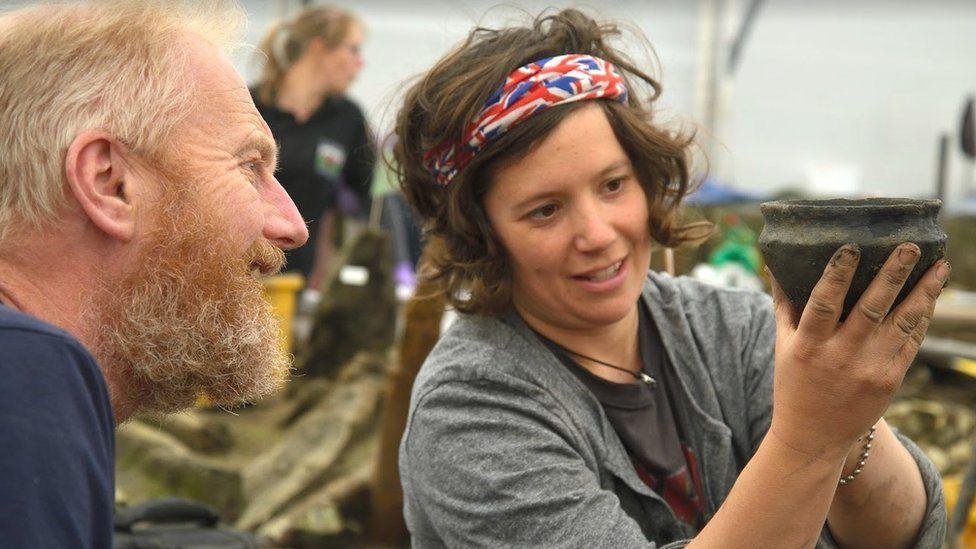
- Published26 April 2024
